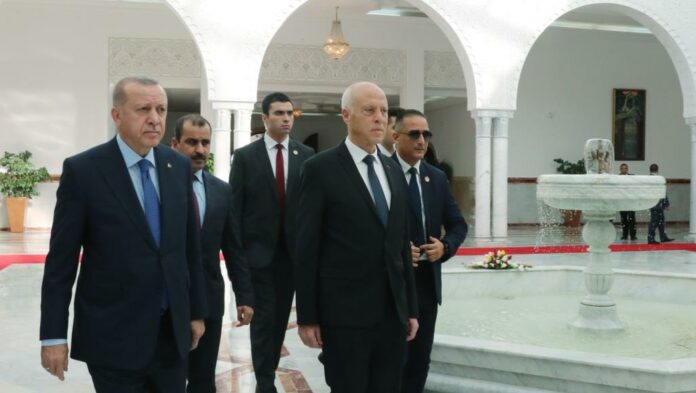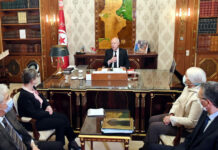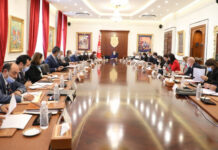The Ministry of Trade announced that Tunisia had submitted an official request to review the free trade agreement signed with Turkey in 2004 and which entered into force in June 2005. It said that it is holding talks with the Turkish party to consider improving or revising the agreements that provide for the exchange of concessions on the level of customs duties on Industrial and agricultural products.
Fatigue of the Economy
According to the data of the National Institute of Statistics, the trade deficit in Tunisia, in the first 7 months of 2021, amounted to about 1200 million dinars (negative 1188 points 900), compared to -964 points of 400 in the same period of 2020, while the Tunisian trade deficit with Turkey amounted to about 2.5 billion dinars in 2020.
The National Institute of Statistics explains this deficit with the increase in imports against a noticeable decline in exports during the period, which increased Tunisia’s debt burden and contracted its economy by 8,8 percent, and a fiscal deficit of more than 11 percent.
This financial and trade deficit negatively affected the Central Bank’s foreign currency balance at a time when the country is seeking to repay part of its loans in order to gain the confidence of creditors and financial donors to obtain new loans in order to mobilize treasury resources.
Political Decision?
The bilateral relations between Tunisia and Turkey after 2011, especially during the period of the troika rule, aroused widespread criticism from opponents of the government and the Ennahda Movement party, which has the parliamentary majority. The rise in imports of non-valued goods, especially clothes and shoes, which Tunisia was a pioneer in its industry before facilitating its supply from Istanbul.
In 2017, Nidaa Tounes spokesperson, Mongi Al-Harbawi, stated that Tunisia suspended the trade exchange agreement for a period of 5 years, at the initiative of his party, which called on the government to intervene.
The decision of the Ministry of Commerce to review the bilateral agreement with Turkey came weeks after the President of the Republic, Qais Saeed, activated Chapter 80 of the Constitution on the evening of July 25, 2021. Accordingly, he suspended the functions of Parliament, due to “an imminent danger threatening the entity of the state,” after months of hidden and open conflicts with Al-Nahda Movement and its President and Speaker of Parliament, Rached Ghannouchi.
Said threatened, on more than one occasion, during the exceptional period specified for thirty days that he approved, that he would not allow the Tunisians to be tampered with and that he would confront the corrupt and monopolists with “iron”.
Rifi-JDD











